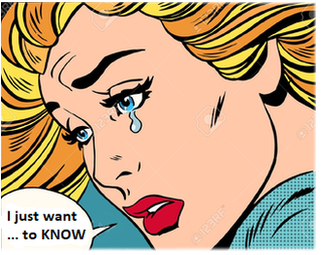 Sometimes we want answers to life's profound questions. Why am I here? What's my purpose?
Sometimes we want answers to life's profound questions. Why am I here? What's my purpose?
Sometimes we just want them for Book Club.
Here at LitLovers, we get a fair number of emails, asking for the answers to our Discussion Questions. Here's the latest :
Tim writes …
We talked about American War by Omar al Akkad in my book group the other day, using the discussion questions found on LitLovers. The group couldn't decide on the best answers to some, so I'm writing to see if you have any answers for them?
I'm sorry, Tim, we don't. Sometimes, the questions are issued by the publishers, as they are with American War; more often, at LITLOVERS we end up writing our own for a particular book. In either case, we don't have specific answers.
Confession: Sometimes we don't even have answers to our OWN questions.
It's anybody's take, really, because the questions are designed to be OPEN ENDED—to stimulate discussion. They're not meant to have a single right answer but to result in different possibilities.
Book clubs tell us that their best discussions are those with different viewpoints, each one as legitimate as the next. It's what makes conversations about books so rewarding: I say PO-TAY-TOE … you say PO-TAH-TOE.
Even authors acknowledge that readers bring different interpretations to a book that they'd never considered. That doesn't make those ideas—or readers—wrong.
On the contrary, new meanings—created through the act of reading, by individual readers—make literature all the richer. Luminaries like Peter Carey and Margaret Atwood, both Man Booker Prize winners (Peter Carey twice!), have told us as much.
So the point is … you DON'T (really) WANT answers to book club questions. That would ruin the fun.
